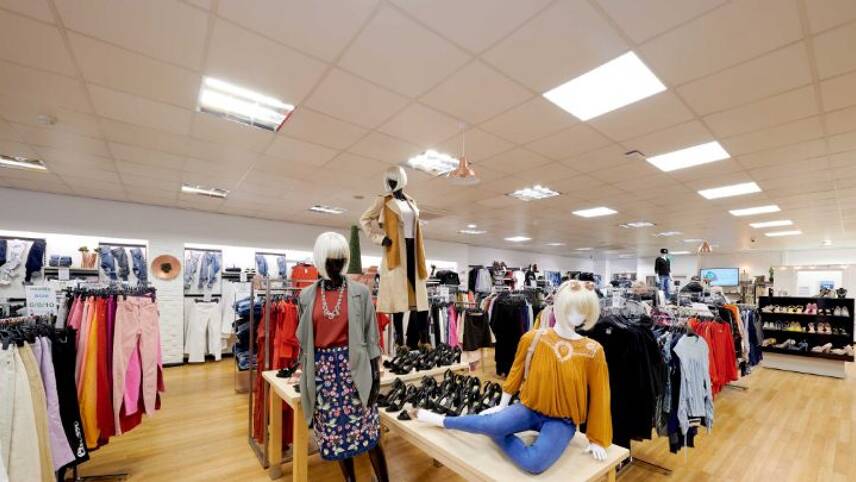Register for free and continue reading
Join our growing army of changemakers and get unlimited access to our premium content

Pictured: Inside Newlife stores' shop in Moreton
Newlife– a charity which sells surplus clothing at a fraction of the RRP in order to raise funds for disabled and terminally ill children across the UK – said this week that it has seen an uptick in the number of retailers supporting its model, in the wake of campaigns by the likes of Fashion Revolution and Extinction Rebellion.
Newlife claims that this model has both environmental and social benefits. On the environmental side of things, the life-cycle of fashion is extended, keeping garments out of landfill or incineration and saving the water, carbon and resources associated with making new clothing. As for the social benefits, the model benefits charities while enabling consumers to access clothing for themselves and their families for low prices.
Fashion retailers which work with Newlife stores include River Island,Primark, Debenhams, New Look and Schuh. Newlife stores also has contracts with Homebase and The White Company for end-of-line homewares, and with Amazon, the world’s largest online retailer, for a range of stock.
“Pre-cycling – preventing clothing from going straight to landfill through buying end-of-line and surplus stock – is the new sustainable shopping trend gaining traction among conscious consumers,” Newlife stores’ head of retail Harjinder Samra said.
“By selling pre-cycled stock from our retail partners, we save around 2,100 tonnes of clothing from landfill every year; that is [equivalent to] the combined carbon volume of 10,000 houses.”
From catwalk to closed-loop
According to McKinsey, the average person now buys 60% more clothing annually than they did 15 years ago. Coupled with population growth, this trend has led to a boom in growth for the global fashion sector – and rapid growth of its waste footprint.
The good news is that the announcement from Newlife stores comes as several of the UK’s largest retailers take first or further steps into closed-loop business models for fashion. John Lewis Partnership and Farfetch have both launched buy-back schemes here in the UK, as has sportswear giant Adidas.
Elsewhere, retailers including Selfridges and Asda have recently trialled their first in-store offerings for second-hand clothes as part of Oxfam’s #SecondHandSpetember campaign, which also saw the non-profit open its first charity ‘superstore’ in Oxford.
This week, the C&A Foundation published its report on ‘The Future of Sustainability in the Fashion Industry’, revealing the ways in which the sector could become “truly sustainable” within 16 years. The report states that high levels of “effort, courage and commitment” are needed from designers, retailers, manufacturers and Governments alike if fashion’s systemic sustainability problems – from consumer-level waste to human rights abuses in supply chains – are to be tackled.
Sarah George
* A previous version of this article stated that Primark and River Island had recently entered into their first contracts with Newlife. This is not factually accurate; the former has been working with Newlife for more than ten years, and the latter for more than 25.


Please login or Register to leave a comment.